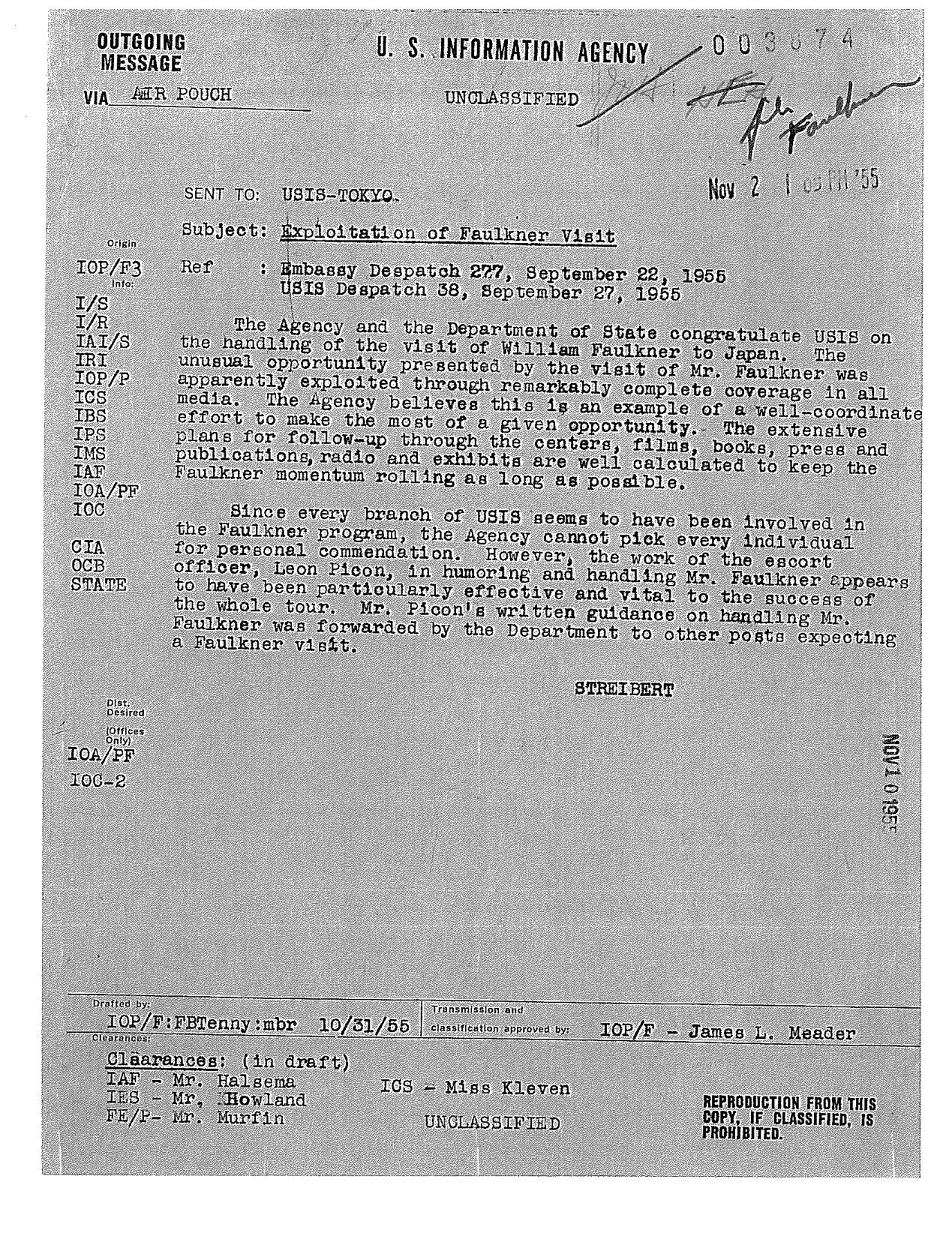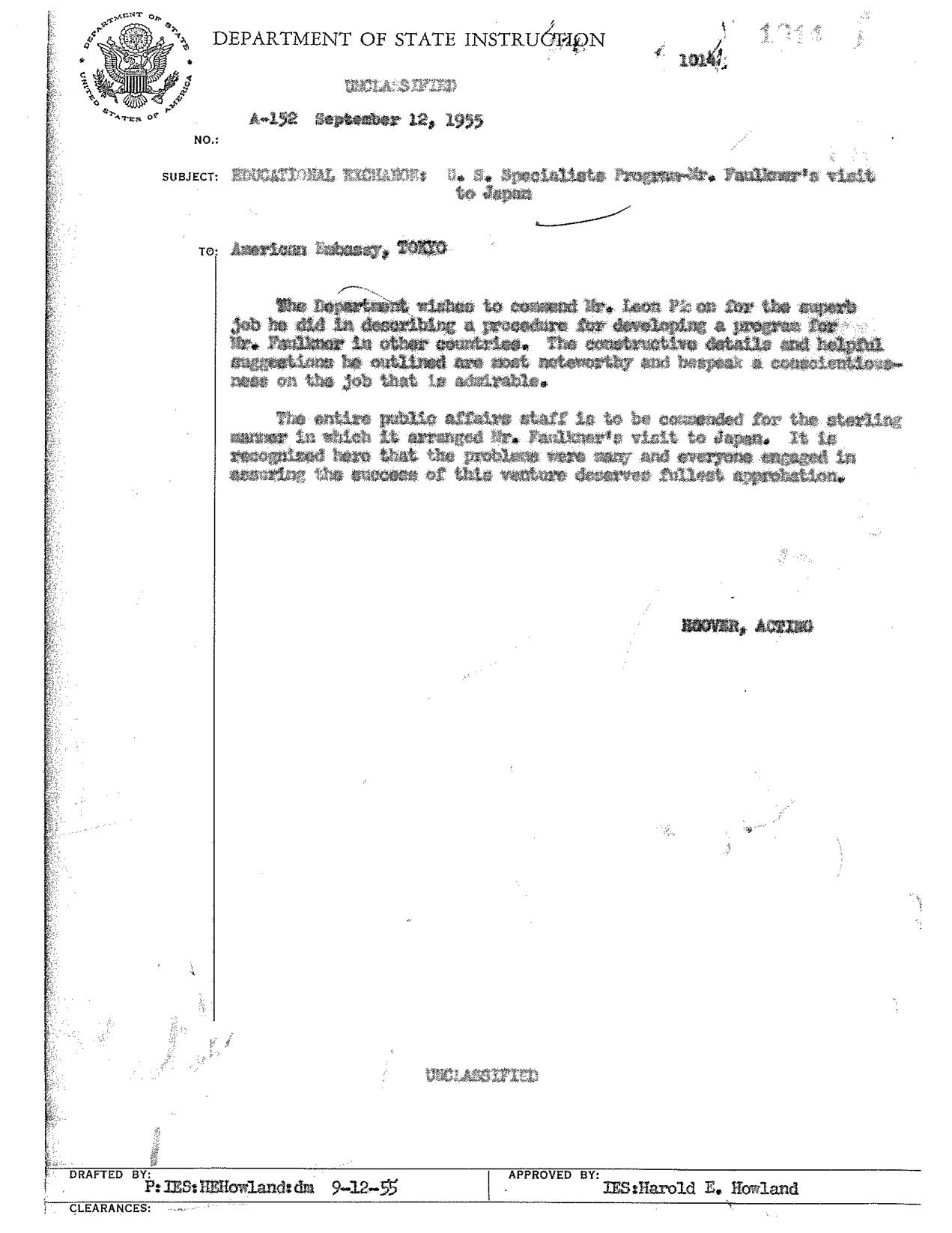The Vault is Slate’s history blog. Like us on Facebook, follow us on Twitter @slatevault, and find us on Tumblr. Find out more about what this space is all about here.
Although at first he didn’t even want to go to Stockholm to collect his 1950 Nobel Prize—his farm wasn’t going to take care of itself!— William Faulkner became one of America’s most important Cold War cultural ambassadors. He and other traveling luminaries like Martha Graham, John Updike, and Louis Armstrong were living proof that America wasn’t just Mickey Mouse and chewing gum.
Foreign-service officers loved his visits because of the press coverage they guaranteed. And Faulkner was an obliging guest. He understood that he was there not just to talk literature but to be living Cold War rhetoric, to explain how Western freedoms allowed the creative voice to express itself. He did this well, especially in his Nobel speech (which he often recited at press conferences and public appearances abroad).
Unfortunately, the author also had a bit of a drinking problem. In fact, he was so drunk at the welcome reception for his 1955 trip to Japan that the U.S. ambassador ordered he be put on the next plane back to the states.
But a farsighted foreign-service officer named Leon Picon ignored his boss and made sure that Faulkner’s visit didn’t bomb. The trip was such a triumph, in fact, that the U.S. Information Agency memorialized it in a book and film. (USIA’s deeply strange and borderline offensive film “William Faulkner’s Impressions of Japan” can be viewed on-site at the National Archives in College Park, Maryland.)
To ensure future goodwill tours would be equally successful, Picon devised some “Guidelines for Handling Mr. William Faulkner on His Trips Abroad” that were discreetly circulated to all foreign posts before a Faulkner visit. Among the guidelines were “keep several pretty young girls in the front two rows of any public appearance to keep his attention up,” “put someone in charge of his liquor at all times so that he doesn’t drink too quickly,” and “do not allow him to venture out on his own without an escort.”
The memos below show how happy the Department of State and the USIA were with Faulkner’s Japan visit—and how grateful they were for Picon’s guidelines, which were circulated to all posts where Faulkner later visited.

U.S. Department of State Bureau of Educational and Cultural Affairs records (1938–1984), Special Collections Library, University of Arkansas-Fayetteville.

U.S. Department of State Bureau of Educational and Cultural Affairs records (1938–1984), Special Collections Library, University of Arkansas-Fayetteville.